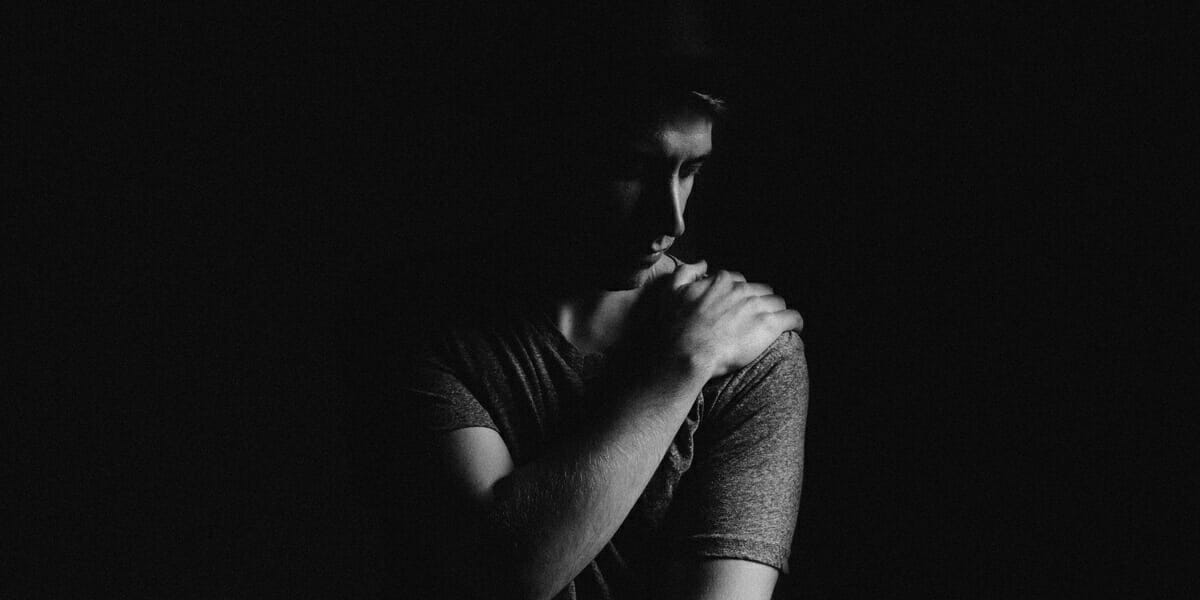Getting Help for Addiction and Depression at a Dual Diagnosis Rehab in Arizona
Dealing with depression on its own can be difficult as can dealing with a drug or alcohol addiction itself. But, when you are trying to battle addiction and depression together, it can be a challenge. When someone is battling addiction and a psychological disorder, such as depression, it is referred to as a dual diagnosis. Getting help from a dual diagnosis rehab in Arizona can help people battle both of these issues.
According to the National Survey on Drug Use and Health, 9.2 million adults in the U.S. experienced both mental illness and substance use disorder in 2018.[1] Numbers like that show that the combination of addiction and depression is prevalent in the United States. Let’s take a look at how to recognize the symptoms of someone with dual diagnosis as well as the best course of treatment.
What are the symptoms of addiction and depression in someone with a dual diagnosis?
While the symptoms of dual diagnosis will differ from patient to patient, there are several common ones to be aware of. They include:
- Difficulty managing daily tasks and responsibilities
- Sudden change in behavior
- Suddenly avoiding social events
- Neglecting health & hygiene
- Delusional thinking & statements
- Suicidal thoughts or behaviors
- Poor work or school performance
If you notice that someone you love has one or more of these symptoms, it’s important to try to talk to them and get them the help they need.
If you know someone already suffers from a certain psychological disorder, you may want to pay extra close attention. Studies show that people with certain disorders are at an increased risk of developing a substance abuse disorder. Here is a breakdown from Mental Health America about the frequency of how certain disorder increase the risk of substance abuse:[2]
- Antisocial personality disorder: 15.5% increase
- Manic disorder: 14.5% increase
- Schizophrenia: 10% increase
- Panic disorder: 4.3% increase
- Major depressive disorder: 4.1% increase
- Obsessive-compulsive disorder (OCD): 3.4% increase
- Phobias: 2.4% increase[3]
Being vigilant and attentive can help you become more aware of the symptoms of dual diagnosis and seek treatment for yourself or a loved one.
Treatments for Dual Diagnosis Patients
One of the most important things to realize about dual diagnosis is that the mental health issues and substance abuse must be treated at the same time. If they are not, the chance for long-lasting recovery can be minimal. By looking at both issues together, people are able to see whether pre-existing mental health issues lead them to self-medicate with substances.
Perhaps, it was the other way around and substance abuse leads to mental health issues. Whatever the case, it’s important to talk about both issues at the same time to achieve long-lasting recovery.
Since everyone’s addiction is different, treatment for dual diagnosis patients will be different as well. Some common forms of treatment include:[1]
-
Detox
This is done to rid the body of the addictive substance. Medical staff is often needed to help wean the person off the drug and reduce the withdrawal symptoms.
-
Psychotherapy
Therapy is a big part of the treatment process to help people understand the root of their addiction. Cognitive-behavioral therapy helps people with dual diagnosis learn how to change their thinking that may lead to substance abuse.
-
Support Groups
Support groups can help people share their frustrations and learn from other people who are going through the same things as they are. This is also a great opportunity for people to meet new friends that will not steer them down the wrong path as they try to recover.
Some patients may undergo all three types of treatments or just one. Others may experience a different type of treatment under their customized plan.
Dual Diagnosis Rehab in Arizona
The team at Silver Sands Recovery understands the challenges of dual diagnosis and is here to help. We offer dual diagnosis treatment to deal with both issues at once to help you live the sober life you deserve. Our team helps people uncover what leads to their substance abuse, how to deal with it, and how to live without harmful substances.
Call Silver Sands Recovery today or contact us online to begin dual diagnosis treatment and to begin living a sober life.
Sources:
[1] https://www.nami.org/About-Mental-Illness/Common-with-Mental-Illness/Substance-Use-Disorders#:~:text=The%20combination%20of%20these%20two,substance%20use%20disorder%20in%202018.
[2] https://www.mhanational.org/
[3] https://dualdiagnosis.org/substance-abuse-among-suffering-phobias/
About the author:

Lisa Waknin is the Founder and Director of Silver Sands Recovery, located in Prescott, Arizona. Lisa started Silver Sands Recovery after immersing herself in the addiction treatment world for several years to figure out what could be done differently to help her daughter and others like her to overcome addiction and stay sober. She believes in a hands-on treatment approach, which includes taking someone out of their environment, providing a 90-day program in a structured environment. During treatment, clients not only recover physically but also learn to live their life again. Lisa is a sought-after expert speaker for recovery support groups, charities, schools, communities, and companies wanting to educate themselves on the explosion of opiate and heroin abuse in our country and the best way to understand, treat, and beat it.





